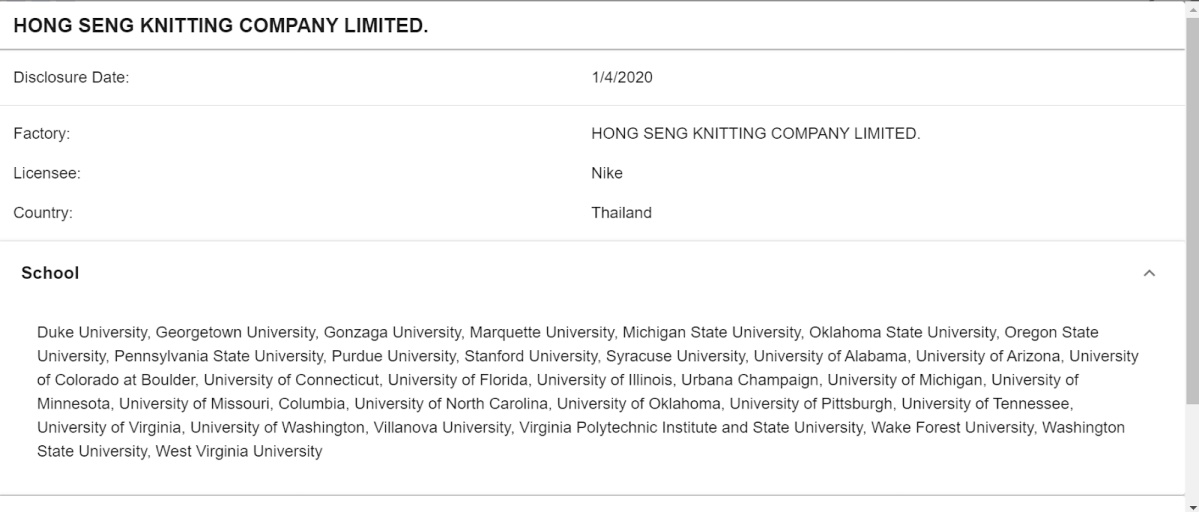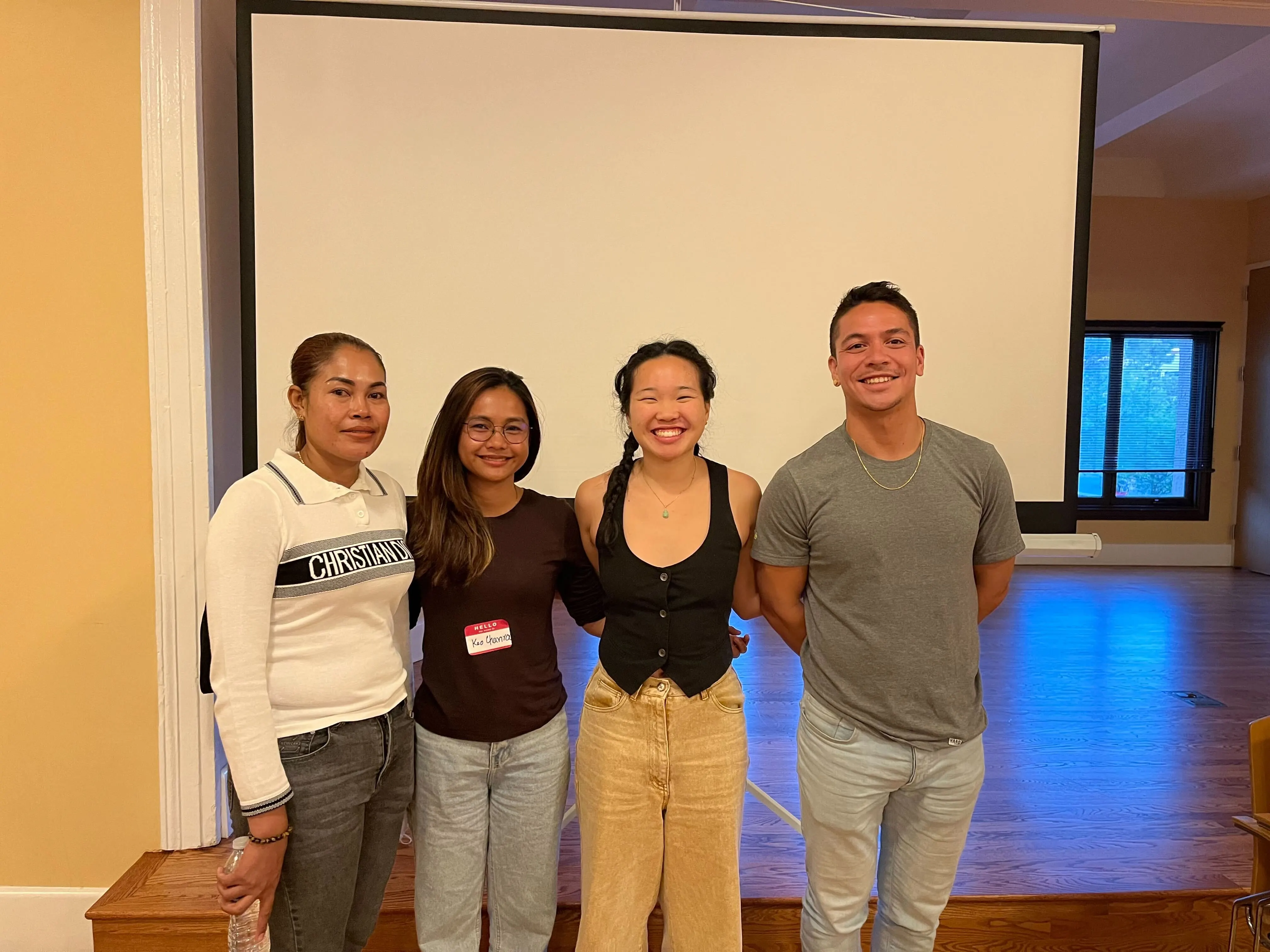While a worker at the Hulu Garment factory in Cambodia, sewing products for Amazon and Adidas, Chhorpesal “Pesal” Chhom says she was one of millions of exploited garment workers who were coerced or lied to by factories during the pandemic and failed to receive hundreds of thousands of dollars in wages. Now, she is speaking out.
Chhom visited campus Monday alongside organizers of the Pay Your Workers campaign, a global coalition of international labor rights groups, to speak about the wage theft and abuses that factory workers say they endured, calling for greater accountability from major brands. The event had an audience of roughly 20 students included both a presentation and Q&A.
As one of nine siblings, Chhom said her family was her motivation to move to Phnom Penh in 2005, where she worked at the Hulu Garment Factory for 14 and a half years. Chanra Keo, an organizer at the Center for Alliance of Labor and Human Rights (CENTRAL) in Cambodia, helped translate for Chhom during the campus event.
On April 22, 2020, Chhom said she was told by her employer to report to the factory, even though it was closed and they didn’t have any orders due to the pandemic. Chhom and other workers say they were then coerced to unknowingly sign resignation letters under the false pretense that they would receive proper compensation.
“They did not pay us the proper compensation because they did not follow the labor law in Cambodia,” Chhom said, translated by labor rights activist Keo from Khmer to English. “When workers realized that the compensation was calculated wrong, we started to talk to each other and protested in front of the factory.”
The two-day protest was largely unsuccessful, Chhom noted, adding that some workers were fearful of joining the protest because Cambodia had just announced a lockdown due to COVID-19.
Chhom said that losing her job at the Hulu Factory caused “many problems” for her, including weight loss.
“While working at the Hulu Factory I had already fallen into debt. After I was fired, I borrowed more money to pay back existing [debt],” Chhom said. “While working at the Hulu factory, I had been sending money to my mother regularly. Afterward, I didn’t have any income to send money to my family.”
According to U.S. Campaign Director of Pay Your Workers Billy Yates, Adidas gets most of its apparel from Cambodia. He added that “what happened with Pesal and the Hulu Factory isn’t unique: actually, it’s more of a rule rather than an exception.”
Some audience members seemed to react with surprise when campaign organizer Katie Nguyen said that Stanford has a multimillion-dollar contract with Nike, and specifically sources apparel from factories known for not paying their workers such as HONG SENG KNITTING COMPANY LIMITED.
The Daily reached out to the University for comment. The Daily has also reached out to Nike and Adidas for comment.

“Brands thrive on their reputation, and you are a key demographic for these brands. They believe that in college you make lifelong commitments to the brand. So it makes sense for students to hold brands accountable,” Yates said.
Stanford was one of six stops during the Pay Your Workers Campaign tour along the West Coast. During the event, campaign organizer Nguyen noted that students have a unique opportunity to use their position in their school to hold brands accountable. Yates cited an event in Portland, where 45 other union workers and community members disrupted a sustainability fashion conference that Adidas spoke at.
“Pesal can do a protest with 300 other workers outside of the factory for two days and brands just don’t care. You show up at their sustainability conference like we did in Portland and all of a sudden it’s a completely different reaction,” Yates said.
Chhom said her basic salary at Hulu Factory was around $220 to $250 a month, which she said was comparable to wages at other factory jobs in the area. Yates highlighted that compared to the large sums of money Adidas spends on events like Coachella, the severance they owe their garment workers is significantly less.
When asked about what inspired her to keep working and fighting for the cause, Chhom referred back to the cycle of exploitation that factory workers continue to face to this day.
“What inspires me the most to keep continuing the struggle is to find solutions,” Chhom said. “The most important thing is that we know what we are doing is right, so we continue seeking other solutions.”
The event was hosted by the Asian American Student Association (AASA) and was a part of Pay Your Workers’ larger advocacy tour along the West Coast. AASA organizers Emily Sidharta ’26 and Joelle Warden ’26 moderated the event, which took place in the A3C ballroom. According to AASA organizers, the event aimed to raise awareness of the injustices faced by garment workers and the need for greater accountability from large retail companies.
Keo explained that Cambodia is located in Southeast Asia near Vietnam and Laos and serves as a prime location for large companies like Adidas and Amazon to set up sweatshops. A single-party dominated political-system and difficulty unionizing all pose challenges to reform efforts by human and labor rights organizations in the area, according to Keo.
“Another challenge that we face is harassment: the legal allegations experienced by prominent leaders of independent unions who have been to prison many times [while] protecting workers’ rights,” Keo said.
Sreymich Hai, another former Hulu Garment factory worker, was anticipated to speak at the event but was unable to attend in person. Event organizers shared her story through a pre-recorded video.
